On April 24, 2025, Saha, the Ministry of Works, Housing and Water Resources, and Resource Centre Network convened senior policymakers, funders, implementers, and community representatives at the Coconut Grove Hotel in Accra for the National Level Learning Alliance Platform (NLLAP). The session—Driving Access and Equity in Water: Enabling Environment for Last-Mile Communities in Ghana—focused on forging sustainable, inclusive strategies to serve Ghana’s hardest-to-reach populations.
Context & Purpose
Safe drinking water is a recognized human right and essential to public health. Yet, according to the 2022 WHO/UNICEF Joint Monitoring Programme, over two million rural Ghanaians still lack reliable access. Urban and peri-urban improvements have outpaced rural gains due to low population density and high delivery costs. This NLLAP gathering aimed to identify innovative financing and policy measures to bridge the last-mile gap and ensure equitable water access for all communities.
Workshop Overview
Following opening remarks, the Water Directorate led an interactive workshop exploring practical funding and delivery mechanisms:
- Last-Mile Water Fund: Pooling surplus financial-sector liquidity into a dedicated fund for remote water infrastructure.
- Cross-Subsidization: Redirecting Community Water and Sanitation Agency revenues to support rural service delivery, backed by enabling legislation.
- Sector-Wide Water Tax: Levying manufacturers and corporations that are heavy water users to finance last-mile initiatives.
- Municipal Bonds: Structuring local bond issuances to underwrite rural water projects.
- Performance-Based Allocations: Incentivizing District Assemblies via assessment tools to allocate common and MP constituency funds to underserved areas.
- Service-Area Delineation: Defining clear operational zones to facilitate cost-recovery and subsidy models.
- Livelihood Integration: Embedding income-generation activities to improve community ability to pay for incremental water tariffs.
- Supplier Partnerships: Encouraging manufacturers of water system inputs to offer subsidized inputs, potentially via tax incentives.
Key Takeaways
- Subsidies Are Essential: Participants agreed that targeted financial support is critical to last-mile viability.
Legal and Institutional Frameworks: Effective financing mechanisms depend on supportive policies and structures currently under reform. - Continued Stakeholder Dialogue: While consensus exists on principles, detailed plans and systems must be developed to operationalize these ideas.
Next Steps & Expectations
As a next step, the World Bank’s WASH Acceleration Project staff will engage with Saha Global to align on National Water Policy implementation while Saha continues to build a coalition around professional last-mile water service delivery. Advancing policy, data, and finance integration will require sustained, multi-year collaboration across stakeholders and we are excited by the momentum.
Theo Boateng, Director of Operations, Expansion and Partnerships, showcased Saha’s proven last-mile delivery methodology. Drawing on extensive field experience, he underscored how meticulous planning, community engagement, and financial innovation can deliver reliable, professionally managed water services to remote communities.
As Ghana strives to close its rural water gap, the insights and partnerships forged at NLLAP will guide national reforms, bringing us closer to the goal of safe, dependable water access for every community—no matter how remote.
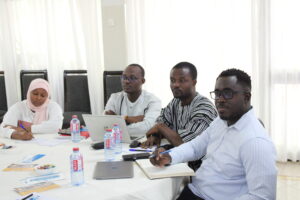

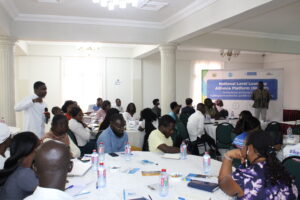
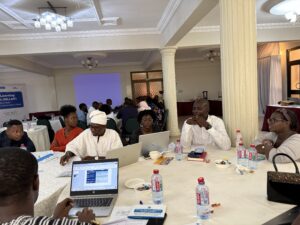
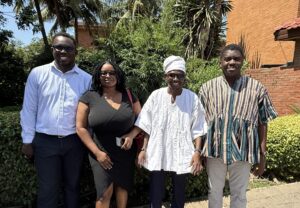
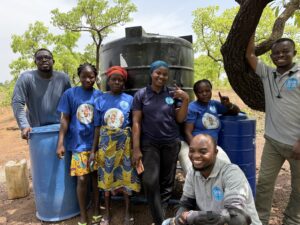
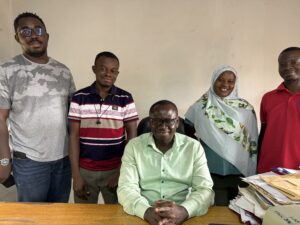
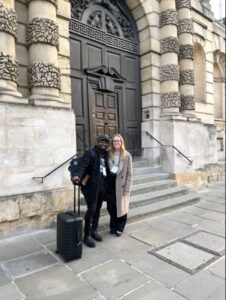 and Co-Founder, Kate Cincotta, and Development Associate, Eric Awini, who represented our organization in discussions centered around the professionalization of rural water, sanitation, and hygiene (WASH) services.
and Co-Founder, Kate Cincotta, and Development Associate, Eric Awini, who represented our organization in discussions centered around the professionalization of rural water, sanitation, and hygiene (WASH) services.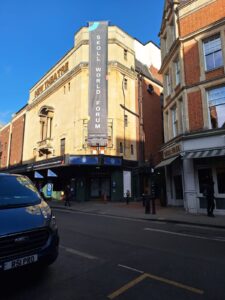 The event also celebrated the achievements of dedicated peers such as Gayatri Datar and Lonnie Hackett (both
The event also celebrated the achievements of dedicated peers such as Gayatri Datar and Lonnie Hackett (both